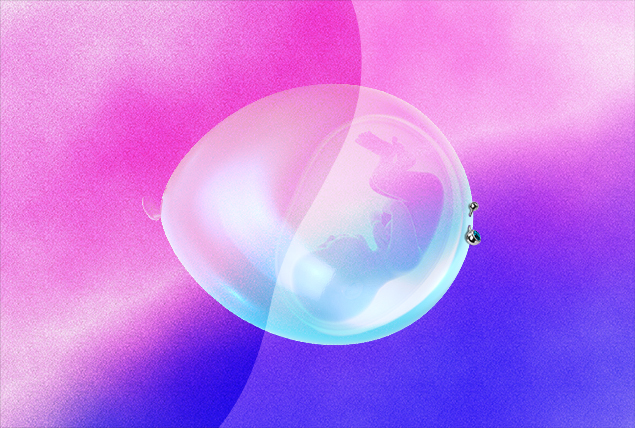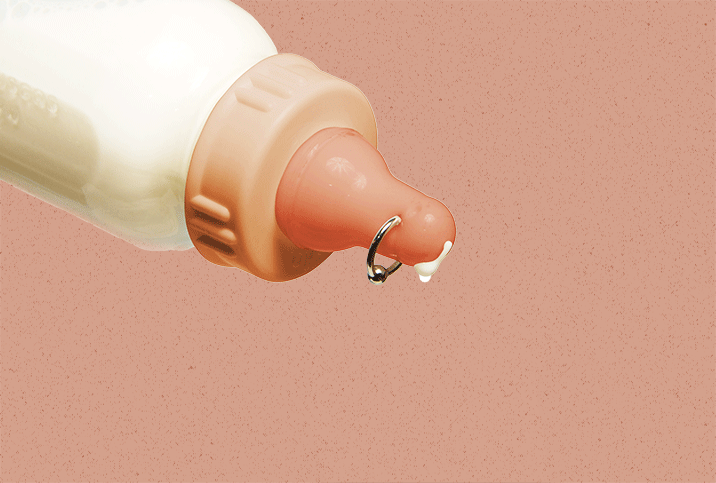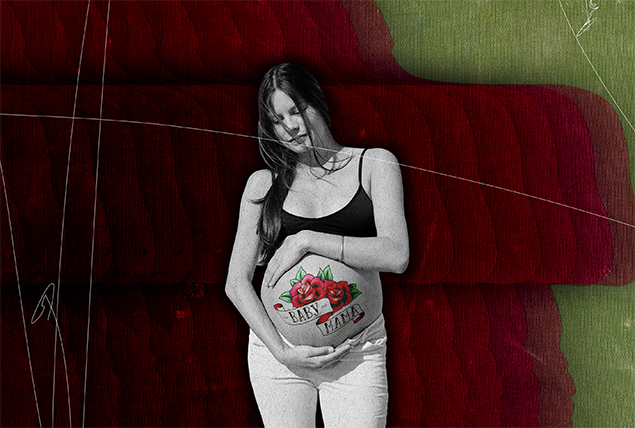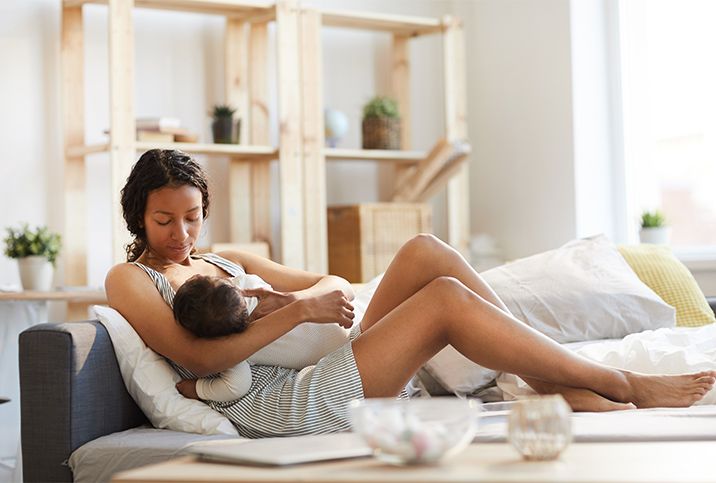Can Intimate Piercings Affect Your Pregnancy?

Many people are overjoyed to learn they're expecting. However, pregnancy comes with many questions for soon-to-be mothers but if you're a lover of piercings and body jewelry, you may be wondering how that might affect pregnancy in general, the delivery and breastfeeding of your newborn.
Of course, while most piercings won't have any effect on pregnancy, discussing potential complications that could arise due to any body modifications is crucial.
Piercings during pregnancy
The recommendation you are probably going to receive from your gynecologist is to avoid new piercings altogether while you're expecting.
While piercings will rarely pose any threat to the growth and development of your baby, there is a possibility for infection which could spread through the bloodstream and impact your baby. For example, unsterile piercing equipment could be the cause of hepatitis B or C and HIV/AIDS.
If you decide that you are going to get a new piercing, here are some tips to prevent infection:
- Use a reputable and licensed piercing location. Check online recommendations and reviews, and ask around in your community of friends.
- Practice good aftercare by keeping the piercing site clean and free from bacteria.
- Consult your doctor at the first signs of an infection.
What shouldn't you pierce when pregnant?
There are specific areas of your body that doctors recommend you avoid getting pierced during your pregnancy, such as the belly and nipples. This is because these body areas stretch and prepare for lactation during pregnancy.
If you have a fully healed belly button piercing, you may remove it during your pregnancy and replace it with a pregnancy or maternity ring. These rings, made of durable polytetrafluoroethylene or PTFE, are designed to expand as your body grows.
If you have a recent piercing that hasn't healed yet, you should consider removing it so the skin can heal and reduce the potential for infection.
Intimate piercings during pregnancy
Healed piercings are likely acceptable to keep throughout your pregnancy. Piercings in the ears, lips, tongue, eyebrows, nose and face won't harm your pregnancy or baby.
However, while intimate piercings, located in the genitals, rarely impact pregnancy, they may cause some discomfort as your body adjusts and changes.
Clitoral piercings
"Clitoral piercing doesn't have to be removed during pregnancy unless it's uncomfortable," said Kecia Gaither, M.D., MPH, MS/MBA, FACOG, a director of perinatal services and maternal-fetal medicine at NYC Health in the Bronx, New York. "The genital area does become engorged, swollen and more sensitive during pregnancy."
Nipple piercings
As early as the first semester, your breasts will begin to enlarge and become engorged. In many instances, people notice their breasts become more sensitive.
Gaither noted that if you're feeling discomfort in your breasts, you don't have to remove your nipple piercings during pregnancy. However, she recommended that if you notice discomfort or infection in your piercings, you should speak with your doctor before removing them.
Piercings and delivery
Some expecting mothers may have concerns about delivering their baby if they have genital piercings. While some piercings may not impact your pregnancy, complications may arise during delivery. Vaginal and nipple piercings may be removed as part of regular medical procedures before delivery to avoid any issues.
For example, if you have a cesarean or C-section birth, your delivery team will remove all piercings.
With vaginal births, intimate piercings will be taken out to prevent delivery complications. Gaither explained that clitoral piercings "need to be removed because there is the risk of tearing around the area or getting caught as the infant is delivered."
Any piercings removed before delivery will be replaced after you've given birth. Although you may not have had any complications with your piercings before or during pregnancy, be sure to monitor them afterward in case any infections arise.
Breastfeeding and nipple piercings
Hana Patel, MBBS, MSc (Med Ed), a general practitioner and specialist in women's health and mental health, and mindset coach based in London, UK, said some expecting mothers take out their nipple piercings during their third trimester, as they may face breastfeeding complications.
Once your baby has been delivered, your decision to breastfeed will impact your ability to keep your nipple piercings. However, if you decide to bottle-feed your baby and only pump breast milk, it may be possible to keep your nipple rings in place.
If you plan on breastfeeding your baby, it's recommended you remove any nipple jewelry to prevent injury to your baby.
"Your baby may struggle to latch onto the breast, the piercing may damage the mouth, and lastly, the risk exists for the piercing to come out and choke the baby while nursing," Gaither said.
Many expecting mothers also remove their piercings during pregnancy to reduce the risk of infection. Some people use pregnancy-safe piercings for short periods to ensure their holes won't close. If you choose to keep jewelry in, aim to use high-grade materials in your piercings to lower the risk of infection.


















